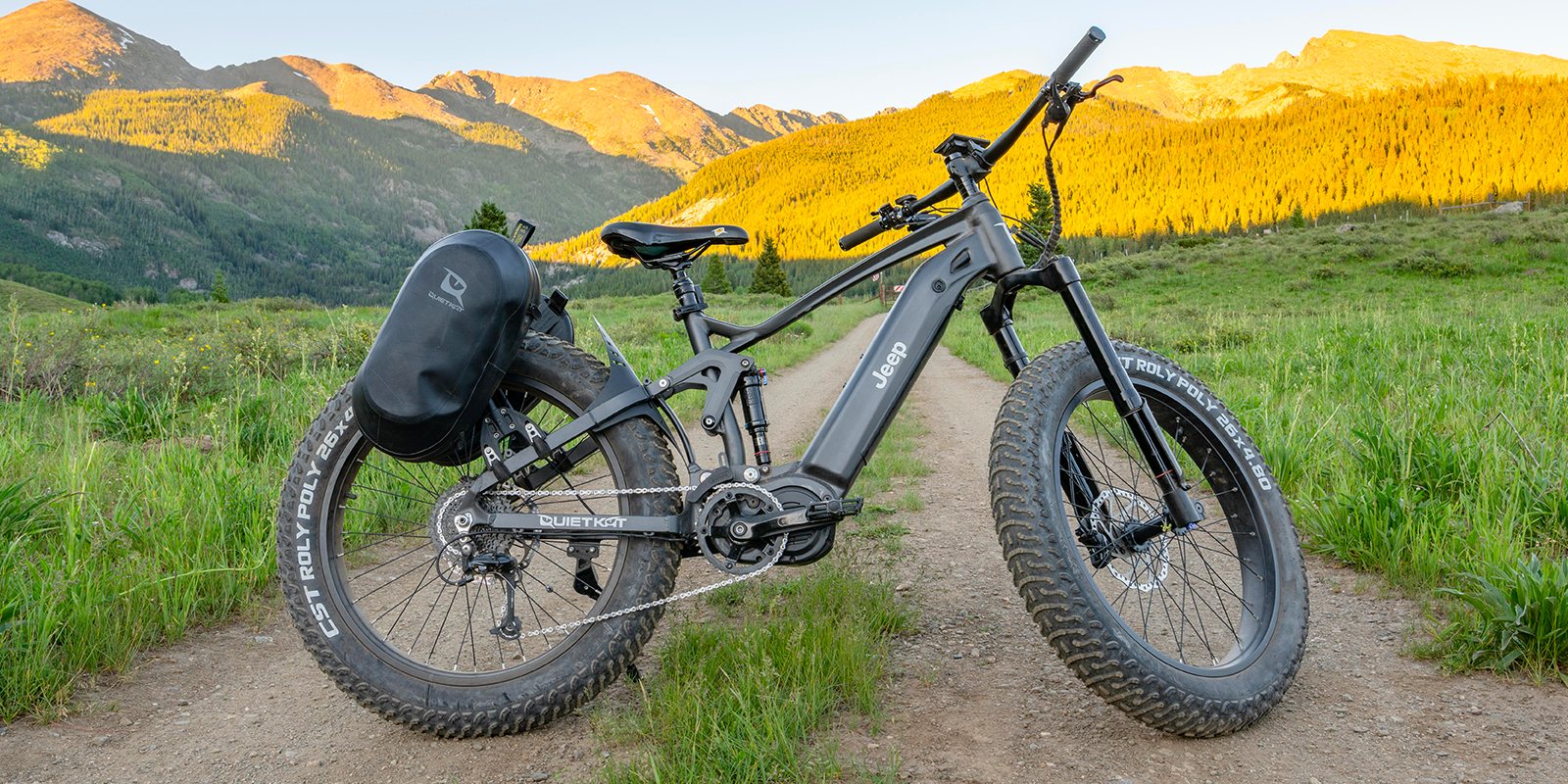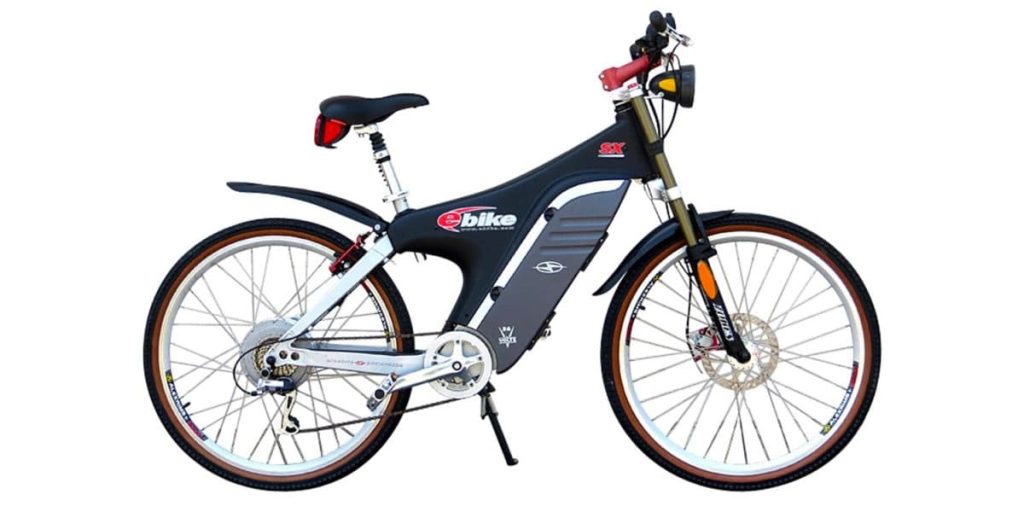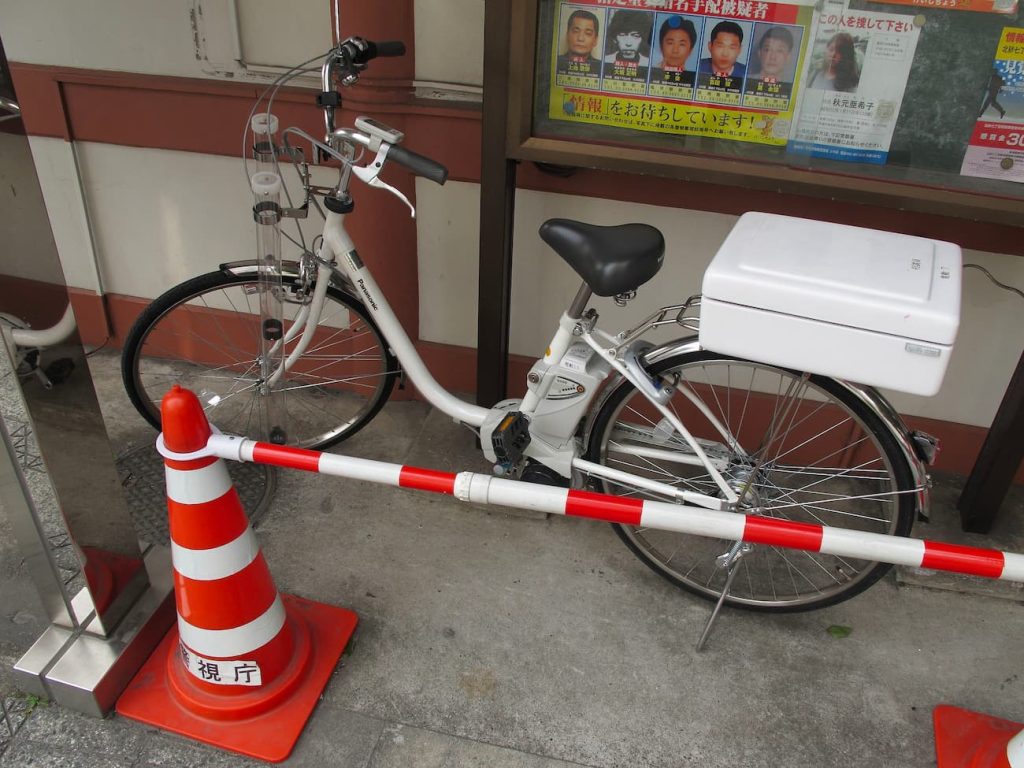
Believe it or not, there’s nothing new about major automakers and motorcycle companies trying and failing to build and sell electric bicycles. Despite millions upon millions of e-bikes being produced and sold each year by bicycle companies, automotive companies have spent decades failing to convert their design and manufacturing experience into e-bike success.
It might sound strange, especially since electric two-wheelers are the largest category of electric vehicles in the world – and growing quicker than any other type of EV. Even in a year when e-bike sales weren’t able to continue their meteoric growth trend, the e-bike industry still grew to a record size without any indication of stopping.
So you’d think that the automotive world, the very industry that has the most to lose from drivers becoming riders, would have gotten into the game by now.
The truth is that it has, and repeatedly. The problem is that Big Auto just hasn’t succeeded at it yet.

Chairman of the Light Electric Vehicle Association, Ed Benjamin, who has worked in the e-bike industry for nearly as long as it has been an industry and who has also advised several automakers on their e-bike projects, recently shared his thoughts on why Big Auto has failed so spectacularly in the e-bike industry.
And he certainly isn’t short on examples.
Legendary American automotive visionary Lee Iacocca was all-in on electric bikes as far back as the 1990s. He pushed for the EV Global electric bicycle (seen above), which was so revolutionary at its time that it had the word “e-bike” emblazoned across the side to let people know what it was. The e-bike started at a modest $995 and could hit 15 mph (25 km/h) all the way back in 1997 – a speed that Europeans still haven’t figured out how to surpass nearly 30 years later.
But as Benjamin explained, even automotive great Lee Iacocca couldn’t make e-bikes work for car companies. As it turned out, the deck was stacked against him. No matter how much he wanted his e-bikes to succeed, it didn’t translate into sales at car dealerships. The $1,000 price meant that car salesmen working on commission couldn’t be bothered to sell them, certainly not when they stood to make a lot more money pushing someone into a Taurus or F150. Dealerships also quickly learned that there wasn’t money to be made in servicing e-bikes when the same car bay could turn over significantly more cash.
Ford continued with global e-bike attempts into the early 2000s but was met with either quick failures or extremely slow, limited sales.

In Asia, giants such as Honda, Panasonic, and Yamaha were also met with limited success, though the limited Japanese market was one area where their early e-bikes did succeed. Panasonic was able to sell its e-bike drive system, but that agreement was largely led by the bicycle company Giant taking the reins and using its bike industry experience to set the partnership up for success.
Yamaha, it should be pointed out, actually created the first production electric bicycle as far back as 1993, though that early model also only took off in Japan while failing to gather meaningful traction in the rest of the world.
Yamaha is one of the few success stories to date, still producing impressive e-bikes, though the company famously spins its non-auto products off into their own companies. I think we can all accept that the engineers designing Yamaha’s motorcycles aren’t heavily involved in Yamaha’s pianos or biomedical products.

Harley-Davidson shocked the industry back in 2018 with its beautiful electric bike designs. Still, it ultimately spun the project out as an independent company, Serial One, that failed to achieve strong sales. The e-bike company was eventually sold off to another bicycle company, which is currently attempting to revive the Serial One brand.
In many of these cases, the actual product was quite impressive. Harley’s Serial One e-bikes often scored great reviews, despite not sticking the landing with sales.
It’s a tough cycle that has continued to repeat itself, with Benjamin explaining his belief that it comes down to the same root causes, “my opinion: The pain and failure has usually been when an engineering culture, proud of their creation, has turned the bikes over to a sales culture that did not truly understand or believe in the product.”
That might explain why plenty of new e-bikes bearing automotive company names released in the last few years were merely licensing deals, such as Jeep’s e-bike built by Quietkat, Hummer’s e-bike built by Recon Power Bikes, Polestar’s e-bike built by Allebike, Toyota’s e-bike built by DOUZE cycles, and Ducati’s e-bikes built by Thok Bikes, among others.
GM was one of the few companies to build an impressive electric bike entirely in-house, but the project came at the worst possible time as COVID was blamed for killing off the GM e-bike before it could succeed.

With decades of examples, you might think automakers would have given up on the dream of building and selling their own electric bikes. But that doesn’t appear to be the case.
Several major companies are still trying to develop their own models, with some even doubling down on their investments.
Porsche is one example, with the company recently buying e-bike motor manufacturers and entire e-bike companies in an attempt to bring more e-bike expertise under the Porsche nameplate.
Rivian, the US-based electric truck maker, has also significantly expanded its e-bike development team with hires from major bicycle companies. The CEO also explicitly stated the company has its eyes on an e-bike model, though didn’t share any details about the direction Rivian’s e-bike could be headed.
All of this is to say that despite automakers consistently trying and failing to bring their own e-bikes to market, one thing is crystal clear: they sure aren’t giving up.
FTC: We use income earning auto affiliate links. More.


